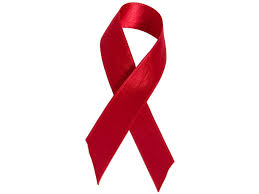
UNAIDS Report Highlights Human Rights as Key to Ending AIDS by 2030
As the world approaches World AIDS Day on December 1, UNAIDS has released a compelling report titled “Take the Rights Path to End AIDS”, emphasizing the critical role of human rights in the fight against HIV/AIDS.
While significant progress has been made, systemic human rights violations continue to hinder efforts to eradicate AIDS as a public health threat by 2030.
“Despite enormous strides in combating HIV, human rights violations remain a roadblock to ending AIDS,” said Winnie Byanyima, Executive Director of UNAIDS. “When people face barriers like lack of education, gender-based violence, or discrimination based on identity, they are prevented from accessing life-saving HIV services. Protecting health requires protecting rights.”
Global HIV Challenges
According to the report, of the 39.9 million people living with HIV, 9.3 million are not receiving treatment, and 630,000 people died of AIDS-related illnesses in the past year. Alarmingly, 1.3 million people contracted HIV in 2023, with 28 countries reporting a rise in new infections.
Particularly concerning is the rate of infection among young women and girls aged 15-24. Every day in 2023, 570 young women and girls in this age group acquired HIV. In 22 countries in eastern and southern Africa, they are three times more likely to live with HIV than their male peers.
“No girl should be denied education or access to information that can protect her health,” said Nomonde Ngema, a 21-year-old HIV activist. “Discrimination and violence against girls must be treated as both a human rights and health emergency.”
Criminalization and Stigma
The report highlights how punitive laws and stigmatization of marginalized communities obstruct access to HIV services.
While countries committed in 2021 to reducing restrictive legal frameworks by 2025, 63 countries still criminalize same-sex relationships. HIV prevalence among gay men and men who have sex with men is five times higher in countries with such laws compared to those without.
“Punitive laws deter vulnerable populations from seeking help,” said Axel Bautista, Community Engagement Manager at MPact Global Action for Gay Men’s Health & Rights. “Governments must prioritize human rights over criminalization to ensure everyone can access the care they need.”
Medical Innovations and Access
Advances in HIV treatment, such as long-acting injectable medicines, have the potential to transform the fight against AIDS. However, these innovations must be accessible to all.
“Medical tools that save lives cannot be treated as commodities,” said Alexandra Calmy, HIV lead at the University Hospitals of Geneva. “The revolutionary therapies and preventive options must be available universally to ensure equitable access.”
A Call to Action
The report also features essays by influential figures, including Elton John, Archbishop Thabo Makgoba, Irish President Michael D. Higgins, and others, who emphasize the urgency of a human rights-driven approach.
Elton John wrote:
"As long as HIV is seen as a disease of ‘others’ and not as a shared human issue, AIDS will not be beaten. Science and medicine are essential, but inclusion, empathy, and compassion are how we will end AIDS."
President Michael D. Higgins added:
"Ending AIDS is both a political and financial choice. Achieving universal human rights is not just a moral obligation but a practical necessity in eradicating AIDS."
The Path Ahead
The UNAIDS report underscores that ending AIDS by 2030 is achievable, but only if leaders prioritize human rights. It calls for urgent action to dismantle discriminatory laws, address gender-based violence, and ensure equitable access to medical innovations.
As Jeanne Gapiya-Niyonzima, founder of ANSS and the first person in Burundi to publicly disclose her HIV status, stated:
"If the world is serious about ending AIDS, it must protect the rights of every individual."
The message is clear: the fight against AIDS is not just a medical challenge—it is a human rights imperative.